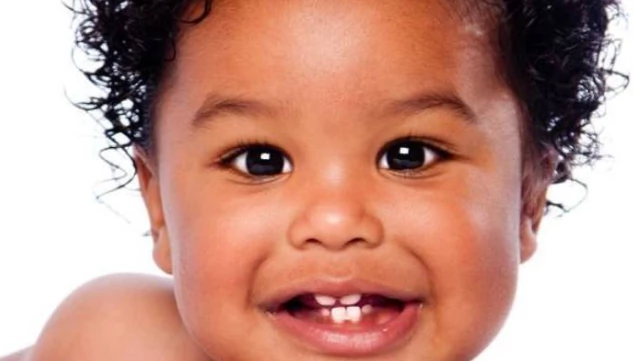Is your baby teething? Some of these Nigerian baby upper teeth first myths are hilarious while some are simply outrageous!
Some will leave you doubled over in laughter, and some will make you scratch your head in wonder while others will scare your socks off.
What is teething?
Teething is an important milestone in your baby’s development. While some of these myths make teething out to be such a gruesome stage in your baby’s life, you can rest assured that it is perfectly normal. Most babies start to teeth around the 4-month mark. No two babies are the same, so some babies will reach this milestone earlier than others.
What to expect when your baby is teething.
• Sore gums
• The baby begins chewing on things
• Flushed cheeks
• The baby dribbles more than usual
• Babies become more irritable
Popular baby upper teeth first myth
Some of these myths have successfully traveled from one end of Nigeria to the other. This means that they are widely believed to be facts. These are some of the most popular ones:
Teething always comes with a fever
This myth makes mothers watch out for fevers as soon as the baby is born. Every change in temperature may make some moms jump in to save the situation with numbing cream and some pain relief medicine. A baby’s fever doesn’t always mean they are growing new teeth. In fact, there are no scientific studies that link teething with fever.
If your baby develops a fever, you should take him to the pediatrician to check it out. This is the only way to rule out serious illnesses.
Teething causes diaper rash
Baby upper teeth first myth in Nigeria like this nappy rash belief is one of the hilarious ones. Teething does not cause nappy rash. If the baby develops a nappy rash during teething, other factors could be responsible. For one, you should check that his diaper is well-ventilated. If it isn’t, maybe you should reconsider better diaper brands. Also, your baby’s nappy rash could also be a sign that you need to change him more often.
However, if your baby is dribbling a lot, she might develop some rashes on the face.
Any teething powder takes away the discomfort of teething
You should be skeptical about this particular baby’s upper teeth first myth. While teething powders and gels could help alleviate some of the discomforts, you should be careful. Talk to your pediatrician before you use any numbing agent on your baby’s gums.
Alternatively, you can rub the baby’s gums gently to take away some of the pain.
Teething causes diarrhea
Just like the teething causes fever myth, your baby will not get a case of exploding diapers just because their teeth are growing out. However, the baby will try to manage the itchy gums by chewing on anything within reach. This means that they could be putting unsanitary items in their mouths, which could cause diarrhea.
A toothless baby has no need for a dentist
This is one of the more traditional baby upper teeth first myths. Since you know your baby more than anyone else, you should report to a dentist if you see anything you know shouldn’t be there.
Baby upper teeth first myth: the top row grows in first
This myth has it that when a baby is developing teeth, the top rows grow in first. This means that the moms could get worried when they see the bottom row come in before the top. It is easy to think something is wrong with the baby because of this.
The fact is that, usually, the bottom incisors are the first to shoot out followed by the top incisors. The growth order should not get you worried!
Baby upper teeth first myth: teeth growth order can tell the child’s future
Some people believe that a child that grows the upper tooth first will grow up to become a prophet. These babies are usually treated with reverence. When such a child grows up, it is believed whatever they say will come to pass.
Due to the belief that the child’s tongue has power, the child will grow up learning to be careful about the words they say and the things they wish for.
Diastema is for very beautiful babies
This myth about teething is also very common. In Nigeria, a diastema is a beauty mark. Anyone with a gap in the teeth is considered naturally beautiful. When a baby has no diastema after developing his first two upper teeth, his parents are supposed to chisel out one for him using a fork. Fortunately, many people have grown skeptical of the whole process of forcing diastema on their babies. This practice has died out because the homemade gap in the teeth closes when the child grows up and loses their milk teeth.
Your teeth will never grow back if rats get to them
The teeth myths don’t end when the child grows up. It continues right up to the time the child starts to lose their milk teeth. Children grow up believing that when their milk teeth fall off, they have to dispose of it properly and with the right words. Otherwise, a rat could swallow it and the child will never grow a replacement tooth to cover the empty spot.
Babies are also included in the myth. If a teething baby accidentally breaks a tooth, the mother should bury it. This is to keep it away from those meddling rats. For babies, the rat story is even scarier: the rest of the teeth will never come out if rats eat them.
In conclusion, you shouldn’t worry too much when your baby is teething. Babies are much stronger than we give them credit for. Your baby will be fine.













